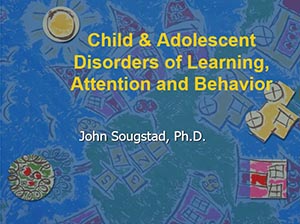You may register and view any of the following webinars by visiting the MSU Social Work Continuing Education catalog and searching for Kinship Caregiver (courses 9500-9505) in the Course Search bar, or by viewing the “Online Courses” dropdown box.
Webinar Topic: Caring for the Caregiver: Coping with Stress for Your Health and Well-Being
Presenter: Amanda Toler Woodward, PhD
Description: Caregiving can be one of the most rewarding jobs, but also one of the most stressful. It is not unusual for caregivers to neglect their own health and well-being. And yet, maintaining physical and emotional health is key to being able to continue providing care to others. This hour-long webinar will provide information on basic warning signs and preventative techniques to help you deal with common health issues such as high blood pressure, diabetes, and arthritis as well as resources where you can learn more.
As a result of this course, you will be able to:
- Identify basic warning signs of high blood pressure, diabetes, and arthritis
- Identify actions you can take to prevent or control these major health issues
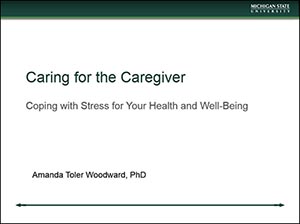
Webinar Topic: When the problem is Asthma- What Does that Mean?
Presenters: Marci Mechtel DNP, MSN, RN, ACCNS-P and Donna Moyer, PhD, RN PCNS-BC
Description: This is a course for parents/grandparents who are caring for a child diagnosed with Asthma
As a result of this course, you will be able to
- State the 3 mechanisms present in asthma, Discuss the medications used in asthma care both short and long acting, inhaled corticosteroids, and oral
- Discuss the importance of the asthma action plan
- Understand the relationship of triggers to the development of an asthma exacerbation
- Use the resources to help with home management
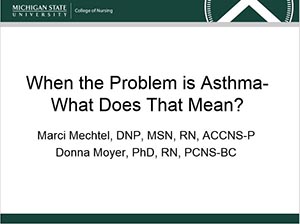
Webinar Topic: I Don’t Have Time for That!: Self-Care and Stress Reduction Techniques for Busy Caregivers
Presenter: Stephanie McCann, LMSW
Description: This webinar will present self-care and stress reduction tools and techniques for caregivers to improve their holistic wellbeing. Self-care is a mindful and intentional practice which includes boundary setting, gratitude for the self, and self-awareness. Exploration of self-needs, self-assessment, and the use of mindfulness will be presented in this webinar. Resources will be focused for busy caregivers on the go.
As a result of this course, you will be able to:
- Identify areas of attention for self-care through self-assessment tools.
- Learn mindfulness techniques for the purpose of self-care as a caregiver
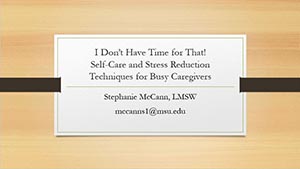
Webinar Topic: Big Behavior and Trauma: Similarities, Differences and Strategies for Parenting
Presenter: Kelley Blanck, LMSW
Description: In the State of Michigan, over 28% of children under the age of 17 have experienced two or more adverse childhood experiences, well above the national average. Adverse childhood experiences include verbal, psychological, physical, or sexual abuse (witness or victim), among other somewhat complex traumatic events (ACES Study, 2011). These traumatic experiences can greatly affect how children view and cope with life. Complexly traumatized children often behave in ways that seem random, unpredictable, withdrawn and extreme, struggling with impulse control and being able to think through consequences (NCTSN, 2017).
Research and practice are now opening our eyes to the significant relationship between behavior and Trauma exposure. In this workshop, you will learn about common similarities and differences between typical developmental behaviors and Trauma behavior, as well as, the interrelatedness of each. You will receive strategies for parenting children who are exhibiting big behavior due to trauma exposure. In addition, you will receive tips and resources for further education and tools available to families.
As a result of this course, you will be able to:
- Define the different types of trauma.
- List the similarities and differences between typical developmental behavior and trauma symptoms.
- Describe strategies for parenting children with big behavior.
- Identify tips and resources for children with trauma exposure
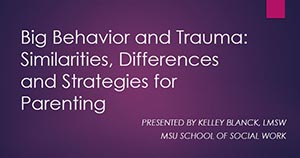
Webinar Topic: Effectively Addressing Symptoms of Learning, Attention and Behavior Disorders in Youth within Kinship Settings
Presenter: John Sougstad, Ph.D.
Description: Kinship families experience unique challenges with youth who often exhibit symptoms associated with disabilities in learning, attention and behavior. This workshop describes how mental health agencies and school settings identify and intervene with these concerns, and how caregivers may effectively collaborate in these processes. How traumatic histories relate to some symptoms will be considered. Positive behavior support strategies to address symptoms of these disorders and resources beneficial to further learning about these issues will be highlighted.
As a result of this course, you will be able to:
- Identify the unique setting characteristics of children’s special needs within the context of kinship placements.
- Develop an appreciation for nature and nurture impacts upon development.
- Understand how learning, attention and behavior disorders are identified and treated within clinic and school settings
- Understand problems with learning, attention and behavior within the context of prior traumatic histories
- Learn how to collaborate effectively to address problems with learning, attention and behavior across home, school and community settings using positive behavior support strategies
- Become aware of pertinent resources helpful to address concerns
